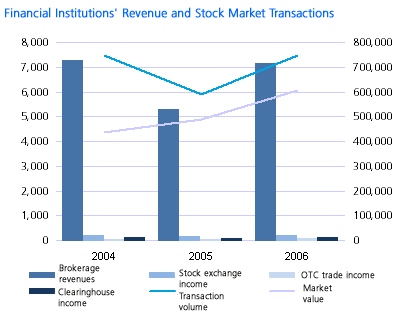Equity Market Trends in Taiwan
Abstract
Taiwan's stock markets have grown at a rate of 13 percent in recent years, trading US$700 billion to US$1.1 trillion annually, with the main board accounting for 90 percent of market value. But massive capital flight from Taiwan to mainland China is dampening further potential growth.
In a new report, , Celent looks the size and scope of Taiwan's equity market, including a detailed analysis of the three sections of Taiwan's bourse: the main board, the over-the-counter (OTC) market, and the venture board. The report also examines the investment banking market, including local and foreign brokerages, and market institutions such as the Taiwan Depository & Clearing Corporation (TDCC).
Taiwan investors are divided into three categories: retail, corporate and foreign. In 2007, transaction volumes for these groups represented a ratio of 67%, 13%, and 20% respectively. Taiwan corporate investors mainly invest in securities trusts and take on the role of dealers, with transaction volumes reaching US$60 billion. From 2004 to 2007, trading by foreigners grew at a rate of 31 percent per year, reaching US$182 billion in 2007. US and European investments accounted for 82 percent of foreign capital.

Revenues at brokerages and other financial institutions in Taiwan are highly dependent on the volume of transactions in the stock market, while the volume of transactions is affected by trends in market value. Many factors affect Taiwan's stock market, but the following have the greatest impact: political and economic factors related to mainland China, the state of the Taiwanese economy and industry, foreign investment, and the economies of Japan and the United States.
"Taiwan is an area with a large ratio of investments in mainland China. Many Taiwan businessmen who have made their money in mainland China are reluctant to send their capital back to Taiwan, due to cross-strait relations and 40% investment restrictions instituted by the Taiwanese authorities. In recent years, capital that should have stayed in Taiwan fled the region, resulting in lowered stock prices," says Hua Zhang, Celent analyst and author of the report.
The 60-page report contains 4 tables and 44 figures. A table of contents is available online.
Members of Celent's Capital Markets and Wealth Management research services can download the report electronically by clicking on the icon to the left. Non-members should contact info@celent.com for more information.

